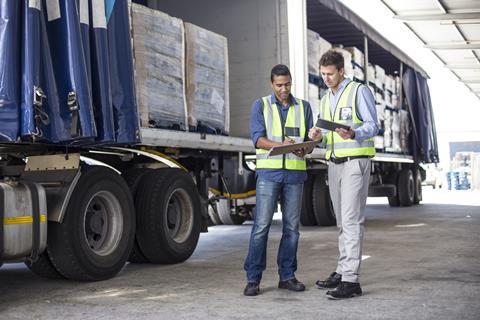
After years of postponements, confusion, uncertainty and contradictory reports, and an enormous effort across the food supply chain to prepare for unclear eventualities, the physical checks on animal and plant imports from the EU introduced at the end of April have fulfilled general expectations.
Any new system brings teething troubles, but the months of forewarnings were not followed by sufficient government action. For example, the major digital failure over the second weekend of May exposed the lack of an effective contingency plan for something as foreseeable as a power outage. Reports of trucks being held for up to 20 hours invalidated previous assurances that goods would be released if not inspected within four hours. And businesses affected have reported a frustrating lack of responsiveness from authorities.
These issues are causing delays, disruption and unnecessary costs during this first ‘light touch’ stage of inspections. We must all be concerned about how facilities and processes will cope at the as-yet-unknown date when controls increase.
The situation is far from hopeless, however. There are key practical changes within the government’s power that would not only improve the here and now, but also help towards government and industry’s shared longer-term vision for a smooth, efficient border control system that provides biosecurity and public health assurance, and supports rather than hampers trade with the EU.
The most compelling opportunity for major improvement is expansion of the government’s sound ‘trusted trader’ scheme pilot. This sensible scheme has the potential to radically streamline the certification process by allowing an export health certificate to be used from the goods’ point of origin. It can also enable a far more efficient system, with checks carried out at the trusted trader’s own site.
Defra should expand the scheme widely and swiftly to reduce pressure on border control posts, minimise delays and wastage, and enable businesses to plan logistics with more certainty.
It is not a silver bullet, but the improvements would be substantive. An expanded scheme could deliver effective controls while lessening demand on public sector border control facilities and the associated cost to the public purse. It should keep the new administrative and cost burdens on EU and UK food supply chain businesses under more control. By reducing the uplift in supply chain costs, it would help minimise price increases for the consumer too.
In the meantime, food chain businesses certainly warrant fuller and more timely communication from government. Dialogue with industry on the timeline for increasing checks from ‘light touch’ to targeted levels should be an urgent communication priority.
As ever, the UK’s skilled and resilient temperature-controlled food supply chain is navigating the challenges as well as the system’s current form allows. There is clear scope for major practical improvements to the operating model as a whole, and I welcome the fact that Defra, in particular, is engaging with the CCF and its members. Government is taking the right approach with the trusted trader scheme pilot, listening and refining with a view to a full scheme.
For the UK to benefit from a system that works for all, the best way to make progress is for government to adopt a genuine partnership approach and take advantage of the experience, expertise and counsel that food supply chain businesses can offer.



















No comments yet